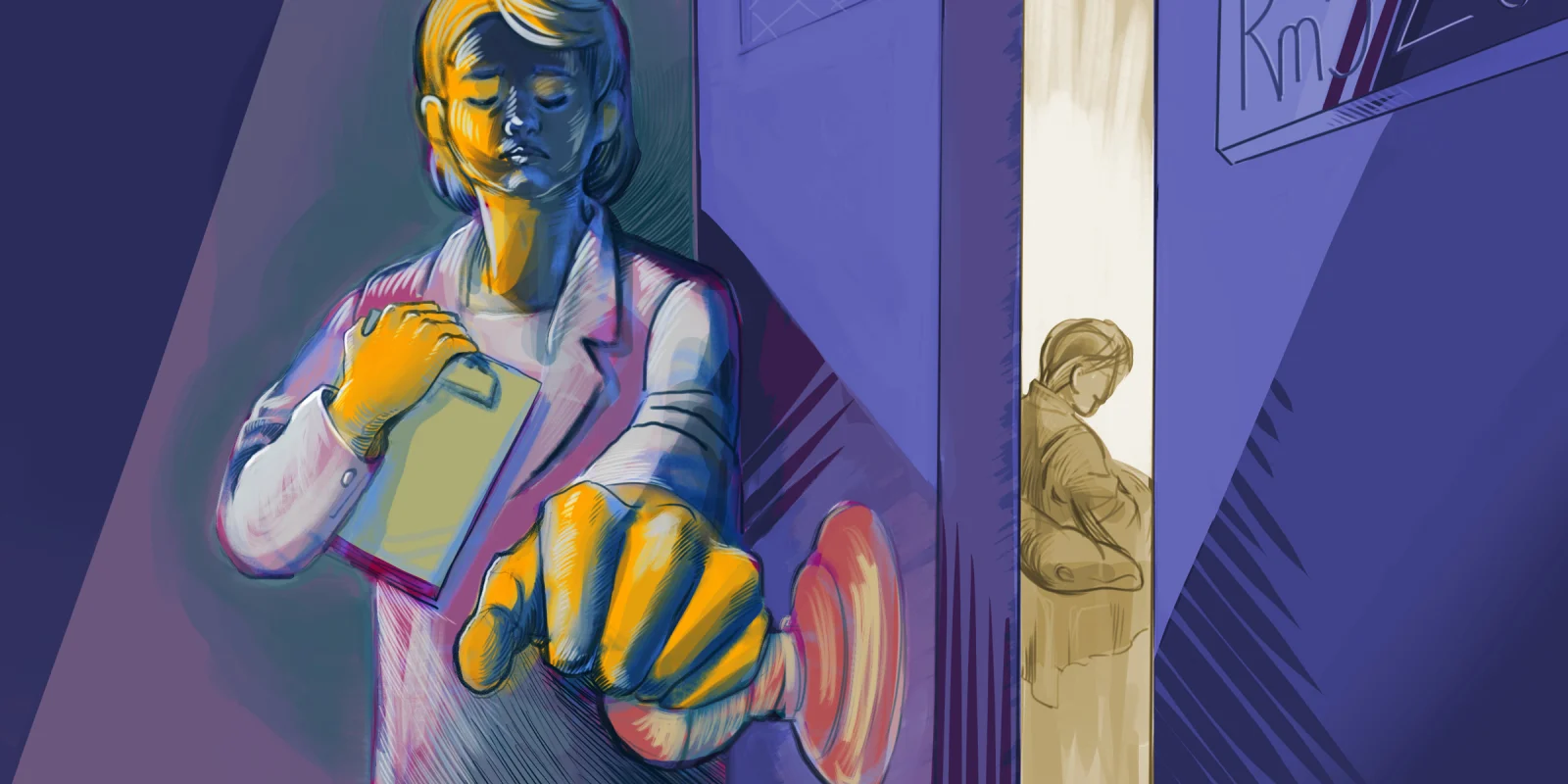Sometimes, you're so tired. Maybe you stayed up late watching your favorite show. Maybe the baby cried all night. Or maybe you just couldn't fall asleep. You're just so tired. But you get up in the morning and you go to work. All you want is an easy day. Happy patients. Happy you. No drama. Well, not today! Because today you have an unhappy customer. Oops! I mean an unhappy patient. You have an unhappy patient.
This patient has written a complaint about you and sent it to your employer. How about the patient that demands you call them back right now or they'll call a lawyer? Or, the habitually late patient who demands to be seen despite being over 20 minutes late for their appointment. I once had a patient get so angry that they couldn't receive their epidural injection the same day of the office visit that they yelled at me and stormed out of the office, cursing F bombs all the way out the door. In fact, he was so loud, one of my colleagues came running down the hallway thinking I was hurt. Another patient threatened to hunt me down if I dared make an error in my documentation. I was meeting him for the first time. All I had done was introduce myself to him.
Working in pain management, I don't have enough fingers and toes to count the patients who demand a prescription of "oxy," "percs," and "vic." Needless to say, they also left the office not too happy, sometimes using colorful language for everyone to hear, including other patients in the waiting room.
I know this sounds somewhat depressing. Over the years, I have come to understand that every once in a while, you will have an unhappy patient. Working in pain management has given me thick skin. I've learned not to stress out over it. This has helped me keep my happiness at home even if I'm stressed at work. Sometimes, the patient is upset for good reasons. In those cases, I find that it's best to apologize first and quickly. Being sincere helps defuse the tense situation, and most patients will appreciate your humility.
However, there are times patients are angry about things that are not your fault, such as insurance denials, medical records not being sent before their visit, or a bad medical experience with another clinician or at another facility. Sometimes, you can brush it off, until they send that letter complaining about you. Or, even worse, they leave a bad online review. Now, that patient has become a customer. Every second of that patient encounter is scrutinized. Did you say the right thing? Did you say the wrong thing? Did you stay calm or did you raise your voice? Maybe you misunderstood the patient and that's why they're so mad. Oh, so their disrespectful and threatening behavior is justified because I misunderstood them?!? But they've left a bad review. Future patients will see this review and immediately paint a picture of you. As a disrespectful, bedside-manner-lacking, talking-over-patients, not-listening clinician. A clinician who is not trustworthy.
This is concerning, especially when considering the high burnout rates in medicine. One reason is the pressure of constantly catering to disrespectful patients. Part of this also has to do with the financial strain many health care organizations are facing, especially during the COVID-19 pandemic. Insurance reimbursement has decreased and no one wants to lose patients, but does that mean we need to keep the problematic ones? Isn't our mental health more important? Or is money? Some might find this question easy to answer. Some might not. We all have bills to pay. However, it is important to note that there are health care groups who have recognized the importance of protecting their employees' mental health. Patient codes of conduct have been drawn up in many hospitals across the country. Some organizations even offer mental health care to clinicians who request it.
Like I mentioned earlier, working in pain medicine has given me thick skin. Or maybe working in medicine plus maturity has given me thick skin. Either way, I've learned to deal with these stressful patient encounters with my own personal tips:
1) Never take it personal. This is work, not life.
2) Do not engage and participate in a heated discussion.
3) Remember to stay absolutely calm. The louder they get, the calmer you become.
4) If needed, exit the exam room. Explain to the patient why you are ending the visit early and then leave.
5) Document, document, document. You may also need to notify admin, especially if the patient was threatening.
6) Prepare mentally for a possible written complaint and/or bad online review.
7) Remember to breathe.
8) Again, don't take it personal. That frustration will show up in your next patient encounter, resulting in a subsequent bad visit. It will also follow you home.
These are the personal tips I've learned over the years practicing as a PA. I don't claim to be an expert, but I've avoided completely ruining my day by following these tips. In fact, some difficult visits morphed into positive encounters. Patients have actually apologized to me for their inappropriate behavior, some even admitting their embarrassment. I've been able to build lasting relationships with my patients. Despite how the day goes, I'm able to see my very next patient with a good attitude. Most of the time, the next patient is also smiling back at you, lifting your fatigue away.
What do you do when you’ve had a stressful patient interaction? Share in the comments.
Karine Ngoie is an interventional pain management physician assistant in Lawrence, Massachusetts. Remembering to be true to herself, respectful of others, and honest keeps her grounded personally and professionally. Karine is a 2022–2023 Op-Med Fellow. Connect with her on LinkedIn.
Illustration by April Brust





